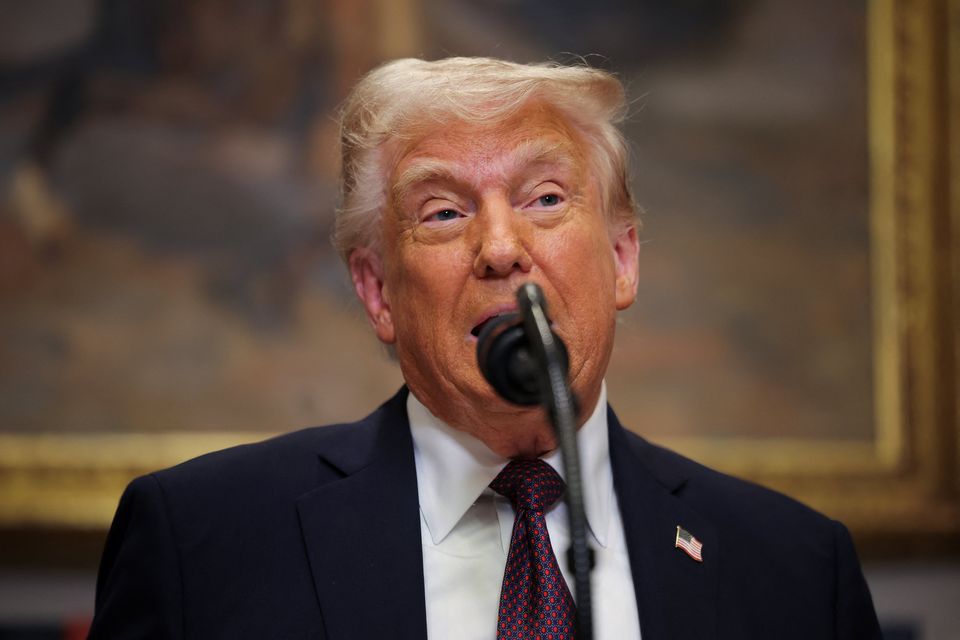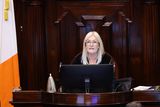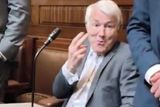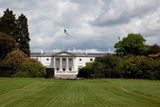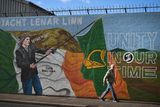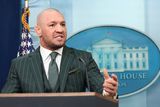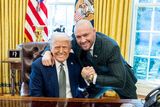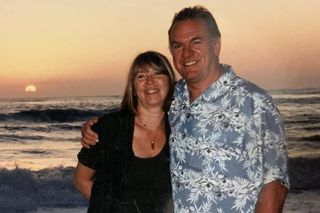Letters: Waves from the US silently shaped our culture for years, but tides do turn
The United States is sliding into authoritarianism under Donald Trump. Photo: Reuters
Ksenia Samotiy provides an interesting reflection on how American culture has been the unseen tide shaping European tastes, values and imagination (‘The last few weeks have been a worrying wake-up call on weaponisation of culture’, Irish Independent, March 25).
But tides do turn. If America continues its slide into authoritarianism, Europe might one day find itself reconsidering its easy consumption of the US media, just as Ukraine, under existential threat, re-evaluated its cultural ties to Russia.
Culture is not a passive force; it is a vessel of influence, and in the wrong hands a weapon.
If a more hostile US begins to export narratives that erode the liberal democratic values Europe holds dear, we might find ourselves looking elsewhere for the stories we tell our children, the music we hum and the films that define us.
Ireland, too, has seen cultural resistance within its own borders, with artists like Kneecap, who challenge dominant narratives and reclaim space for authentic expression.
Their defiance of outside pressures mirrors the broader geopolitical shifts that might unfold. The shift will be gradual, but history shows that when culture turns, politics follows.
Enda Cullen, Tullysaran Road, Co Armagh
There are plenty of perks to being president to lure diaspora candidate home
Joseph Kiely (‘Time to recognise the role of the diaspora by electing one to office of president’, Letters, March 24) suggests our next president should be one of the diaspora brought back from abroad.
Right enough, the prospect of a half-decent salary and a fine (over-sized) house “above in the park” might prove an incentive.
Tom Gilsenan, Beaumont, Dublin 9
Careless error by Trump administration should send shivers down spine
There are some great journalists investigating their governments, Bernstein and Woodward being a well-known example, and they have had to spend a lot of time, use covert contacts, ask unpopular questions and risk their lives to get the information to write their articles.
Now there is an improved approach where the government asks you to join their top-secret defence discussion group as happened for Jeffrey Goldberg, the editor-in-chief of The Atlantic.
Fortunately, like most journalists, he has integrity and didn’t publish the details or ring the Yemen government for comment.
This is an obvious cock-up, as confirmed by spokesman Brian Hughes.
President Donald Trump said: “I don’t know anything about it.”
If the Trump presidency is that careless with top-secret military information, how many of the US’s allies, and undercover operatives, should start panicking?
Dennis Fitzgerald, Melbourne, Australia
Apologising to everyone Trump has insulted could take me quite some time
Hearing that Rosie O’Donnell apologised to Taoiseach Micheál Martin for some of Donald Trump’s remarks made me realise that I, too, should do likewise.
I’ve expanded the recipient list to include other foreign dignitaries who have been subjected to undignified comments from the purported leader of the free world.
Additionally, I’ve added American judges and politicians. I can’t write further as I must travel to the post office for more stamps.
Paul L Newman, Pennsylvania, US
Cholera outbreak coupled with USAid cuts provokes disaster in South Sudan
The impact of the cholera epidemic coupled with Donald Trump’s executive order to freeze humanitarian aid to South Sudan is heartbreaking.
It’s reported that tens of thousands of people are likely to die as a result of this freeze to humanitarian aid by the Trump administration.
It’s disturbing and distressing to learn that this country is undergoing the world’s most severe humanitarian catastrophe, yet it seems global announcements of help have amounted to nothing.
The Trump administration has stated it’s eliminating more than 90pc of USAid’s foreign aid contracts and $60bn in overall assistance around the world.
Musk claimed this aid agency was a criminal organisation that needed to be closed down.
I found it intriguing that neither Trump nor Elon Musk provided any clear evidence to support this claim.
John O’Brien, Clonmel, Co Tipperary
Government dismantling triple lock is a betrayal of Irish desire for neutrality
Ireland is a democracy, so the citizens decide who will represent them in the Dáil.
The proposal by the Government to remove the triple lock turns this concept on its head. Successive polls have shown Irish people want Ireland to remain neutral, to act as a peacemaker and not to be militarily aligned.
Furthermore, Irish people, in an unprecedented move, were asked to vote twice on the Nice and Lisbon referendums.
These treaties were initially rejected, one of the reasons being concerns in relation to the continuing militarisation of the EU. The treaties were only accepted because of the guarantees in the triple lock.
Elizabeth Cullen, Kilcullen, Co Kildare
McGregor speaks to fear and seeks to scapegoat those who are vulnerable
Conor McGregor – known globally for his athleticism, not his statesmanship – used his platform to fan the flames of division, attacking the principles of inclusion and immigration that underpin Irish society and democracy itself.
His remarks, claiming Ireland is “on the cusp of losing its Irishness” and calling immigration an “illegal racket”, are not only irresponsible, they are dangerous. They scapegoat the vulnerable, demonise those fleeing hardship and undermine the ideals he claims to defend.
Let’s be clear: immigration is not a threat to national identity – it is a living expression of it. Nations evolve, cultures grow and the Irish people – with their own history of exile and diaspora – should understand the value of compassion and welcome.
To “protect Irishness” by turning away migrants is not patriotism – it is prejudice. It is the language of fear, not strength. The world is watching. Let’s lead wisely.
Jessica Toal, Belfast
Join the Irish Independent WhatsApp channel
Stay up to date with all the latest news
